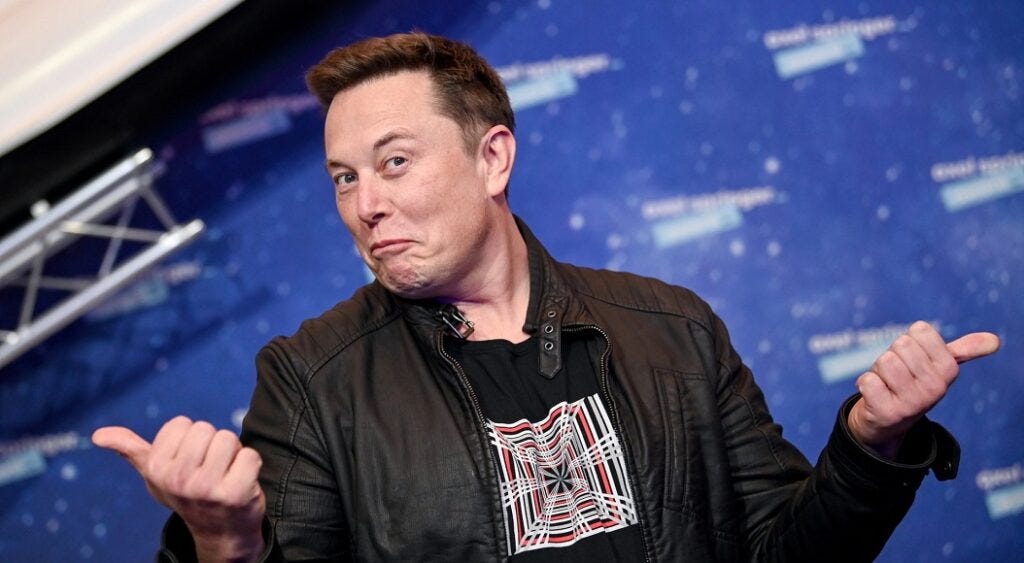Elon Musk Reacts to TikTok Ban in US: A Call for 'Change' and the Freedom of Speech Debate
The recent decision to remove TikTok from the US mobile app stores, as mandated by a new law effective January 19, 2025, has sparked an unexpected ripple through the tech world.
While this move was seen as a win for national security by some, Elon Musk, the billionaire CEO of Tesla and Twitter (now X), has expressed his strong disapproval. Musk, who has consistently voiced his concerns over the erosion of free speech, now finds himself tangled in a complex web of contradictions as he weighs in on the TikTok situation.
A Bizarre Turn of Events: TikTok Banned, X Left Out in China
As TikTok users across the US found themselves locked out of the popular app on January 19, the tension reached its peak. The US Supreme Court upheld the law that required TikTok to be sold, otherwise, the platform would be banned in the country. In a dramatic twist, the law effectively forced tech giants like Apple and Google to remove TikTok from their app stores, throwing millions of American users into confusion.
But it wasn’t just the fate of TikTok that caught Musk's attention. His reaction centered on a glaring hypocrisy in the world of social media: why is TikTok banned in the US, yet X (formerly Twitter) can’t even operate in China? Musk raised this question in a recent post on X, echoing his earlier stance against TikTok’s potential ban.
"I’ve been against the ban on TikTok for a long time, because it goes against freedom of speech," Musk wrote. "That said, the current situation where TikTok operates in America, but X can’t operate in China—something needs to change." The sentiment was clear: the global landscape of social media needed some serious reconsideration.
A Clash of Ideologies: Free Speech or National Security?
Musk’s argument isn’t just a business critique; it's rooted in the philosophical debate over freedom of speech and the role governments play in regulating online platforms. As he explained, the idea of banning a platform like TikTok was contrary to the core values that America prides itself on—freedom of expression.
Yet, the flip side is impossible to ignore. TikTok’s parent company, ByteDance, remains defiant in refusing to sever ties with China, where the app is heavily regulated. In the US, national security concerns have fueled the calls for a ban. The Biden administration’s directive aimed at separating TikTok from ByteDance became a legal showdown that ended with the Supreme Court's ruling to enact the ban. The app’s sudden disappearance left 270 million American users in the dark.
It’s a mess of conflicting priorities: national security versus personal freedom. Musk himself acknowledged that the ban would ultimately benefit X. After all, a TikTok-free America would mean more space for X to grow. But Musk’s moral compass is guiding him towards a more globalized solution, calling for "balance" across countries. His message echoed in a later post where he highlighted, "Even though a TikTok ban might help X, it’s not the right approach for the future of global social media."
Where Do We Go From Here?
The real question on everyone’s mind is: where does this leave us? With TikTok gone in the US, X still blocked in China, and a global ecosystem of apps under constant scrutiny, the line between what’s best for national security and what’s best for free speech has never been blurrier. Musk’s call for change is not just about TikTok or X—it’s about the future of global communication.
Will this be the tipping point for more balanced regulations across borders, or will it lead to more fractured ecosystems? Musk’s perspective, though controversial, serves as a timely reminder that the digital world is not just a playground for tech giants but a battleground for ideas, power, and influence.
And so, the story continues to unfold. As TikTok grapples with its future in the US, X waits for its chance to re-enter the Chinese market, and Musk continues to stir the pot with his calls for change. One thing’s for sure—this isn’t the last we’ll hear of this saga.
In the end, the digital world seems to be on the brink of a new era. But what exactly that era will look like? Well, that’s something we’ll have to wait to see.




